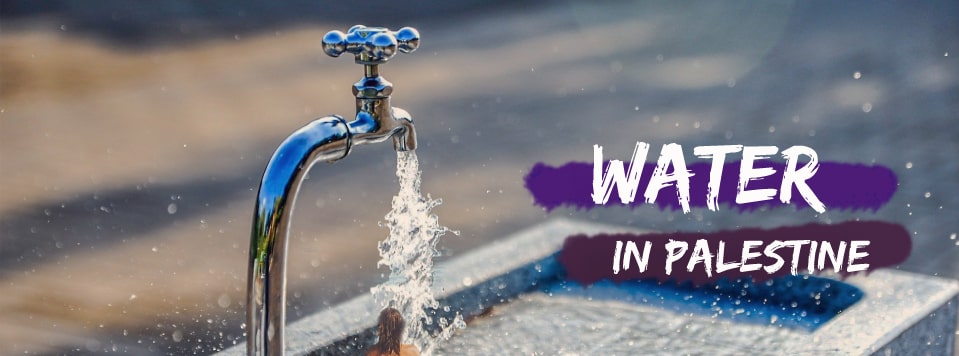
When you travel to Palestine you may be wondering about the water situation because you have read or heard negative things about water availability in the media. Can you take a hot shower in the morning or on a daily basis? Is water turned off at different times? Can the water in Palestine be used safely for drinking water?
We begin by saying that the water supply and sanitation in Palestine are controlled by the Israeli authorities and that Palestine does suffer from water shortages. Besides that, the groundwater is divided according to the second Oslo Accord.
Many people collect rainwater in tanks that are situated on their roofs; however, the collection of rainwater is a limited resource in Palestine. This collection of rainwater ensures the availability of water in the event that the water is turned off during the summer months. Some inhabitants must buy water from tankers in order to meet their daily water needs.
There is about three hundred natural, most of which are located in the east of the West Bank. Palestinians have average use of water of approximately 72 liters per day. Ninety percent of small Palestinian communities have less than 60 liters per day. Some Palestinians in rural villages use less than the average which may be, in some cases, about 20 liters per day for a single person.
Some studies have demonstrated that a significant percentage of the households in Palestine believe their water is of a good quality. The water in Palestine is safe and drinkable for Palestinians, and they experience no ill-effects from using the water for drinking or cooking. For internationals, bottled water is readily available as an alternative water source.
The vast majority of Palestinian homes do not have heating systems, which means that hot water is not always available. Every Palestinian home does have solar panels which heat the water. Several years ago gas or electric heating systems began to become popular among Palestinians so that hot water is available during the winter months. Hotels have hot water available every day, especially the international chain hotels, such as in an international city like Ramallah.
